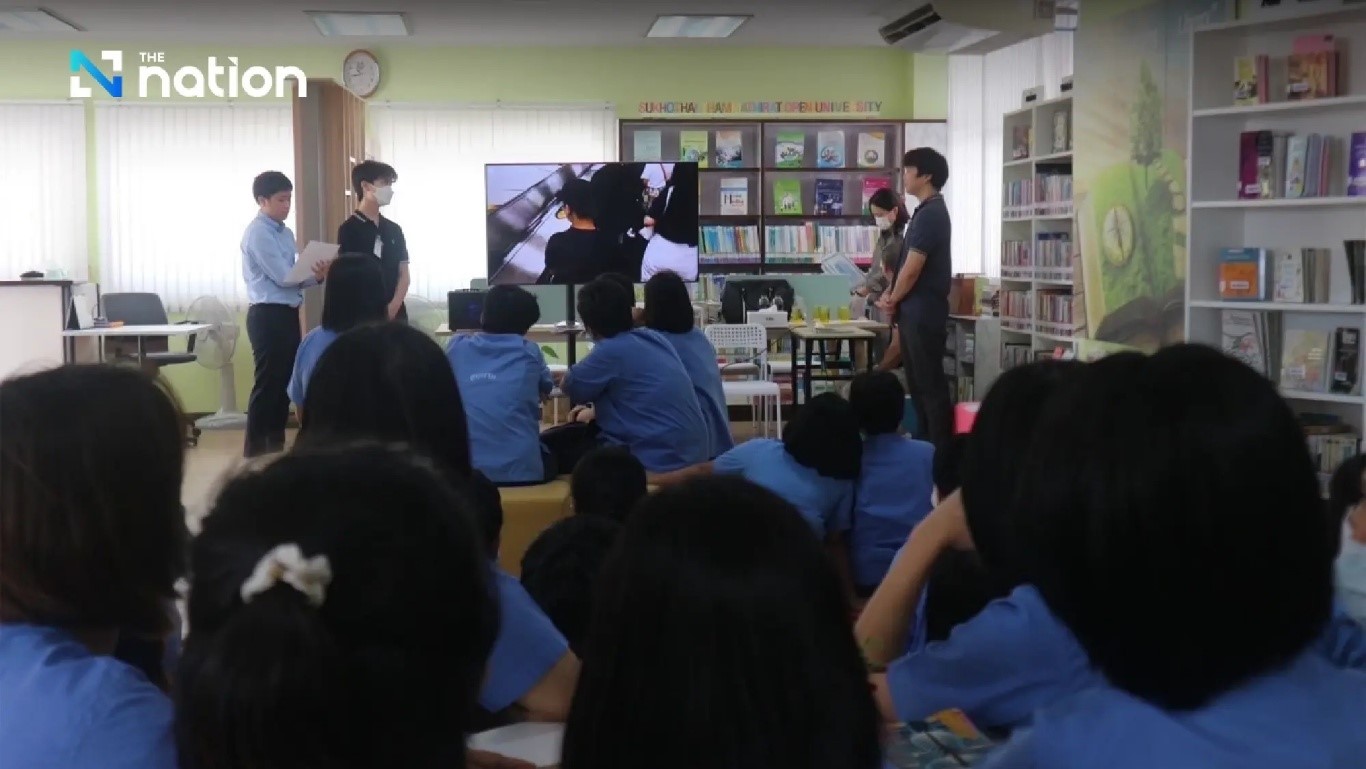Thai student in U.S. innovates to help women prisoners
Thai student in U.S. innovates to help women prisoners
วันที่นำเข้าข้อมูล 26 Feb 2025
วันที่ปรับปรุงข้อมูล 26 Feb 2025

Compassion was on the curriculum. A Thai student at an American high school has developed a virtual reality program to help women in Thai prisons adjust to the outside world before their release in hopes of easing their path back to lives as productive citizens.
Kuntee "Get" Poolvoraluk, a 17-year-old senior at Mercersburg Academy in Pennsylvania, worked with fellow students Punn Sutivong and Kunpol Poolvoraluk to create the virtual reality solution after reading a news item about Thailand’s prison statistics.
Get was disturbed to learn that Thailand has a high rate of women prisoners and that 82 percent of them are mothers. “I couldn’t imagine growing up without my mother,” Get said. In addition, their recidivism rates were also extremely high. But Get didn’t think there was anything he could do about the problem.
It is a problems that has also inspired others others in the Kingdom to take action. Princess Bajrakitiyabha Mahidol, who is also a lawyer, has been a strong advocate for the rights and better treatment of incarcerated women. She worked with the United Nations Office on Crime and Drugs to develop and adopt “The Bangkok Rules.”
The Bangkok Rules are the first international instrument that provides specific and detailed guidelines on responding to the gender-specific needs of women in the criminal justice system, as well as of the children of such women, according to the Thailand Institute of Justice.
Nonetheless, few countries make these issues a priority because there is no political pressure from constituents to do so. The plight of the women remained on Get’s mind.
Then, when taking a class in which he was exposed to virtual reality technology, he thought of a potential solution. He believed it could be possible to ease the women’s return and reintegration into society through the use of virtual reality.
“Spending so much time incarcerated often leaves prisoners struggling to adapt to the real world upon release,” he said. “VR provides the unprecedented opportunity to familiarize prisoners not only with society but how society has changed in their absence as well.”
To increase the odds that his solution would work, Get visited Lat Yao’s Women’s Prison in Bangkok to interview inmates and find out what they believed they needed to successfully transition back to normal life.
The inmates asked for vocational training and support for re-entering society.
Get set about educating himself on virtual reality technology and developed a series of VR videos to provide the training and exposure to life outside prison that the women requested. In June of 2024, he launched a pilot project at Lat Yao and the results have been “overwhelmingly positive,” according to The Nation newspaper.
It will take time, however, to assess the longer-term results. Get and his colleagues will have to follow the women for several years to see if the recidivism rates begin to fall.
In the meantime, he is exploring other ways to help marginalized groups in Thailand, including immigrants, through the use of virtual reality and other digital technologies. He said he wants to make VR available to everyone who could benefit from it.
“Virtual reality lets you escape physical constraints and create a new reality,” Get said.
Photo courtesy of https://www.nationthailand.com/class-of-future/40042424
สถานเอกอัครราชทูต ณ กรุงวอชิงตัน
Consular Office (ฝ่ายกงสุล)
2300 Kalorama Road, N.W. Washington, D.C. 20008
Office Hours
Monday - Friday 09.00-17.00 hrs.
Official Holidays
Official Holidays